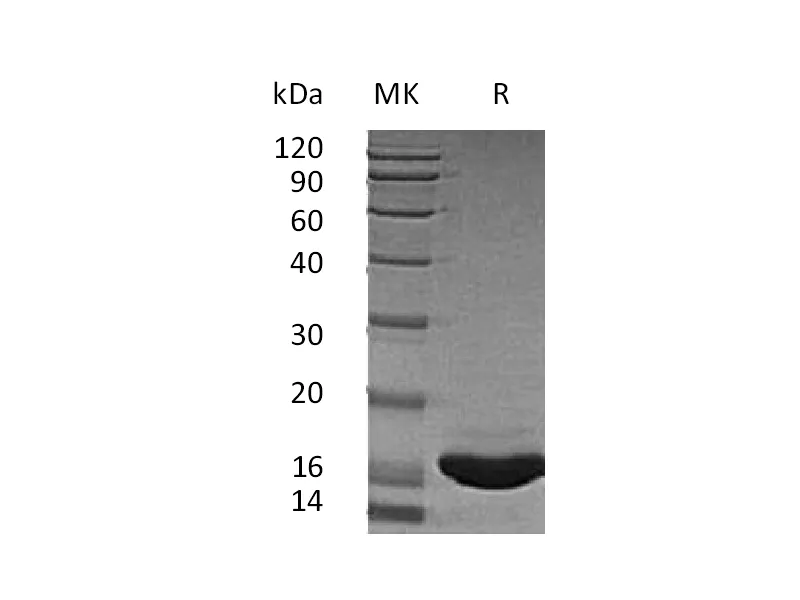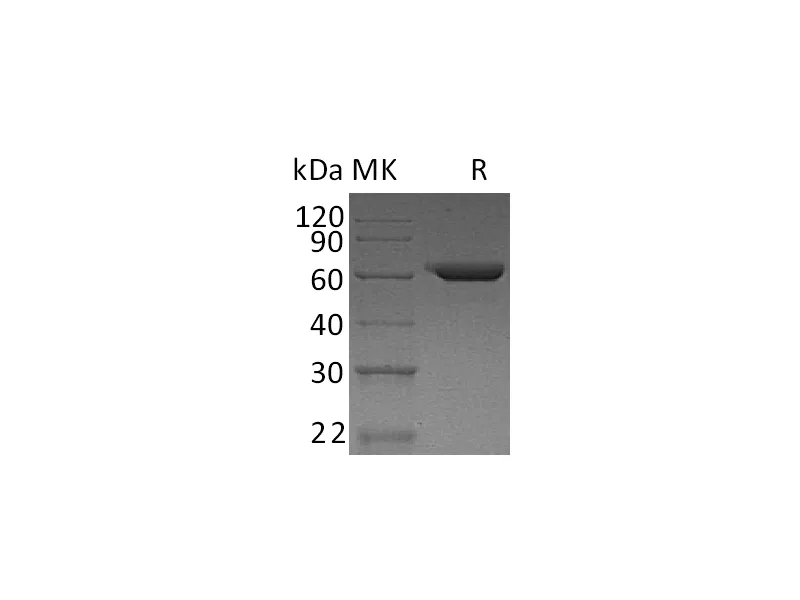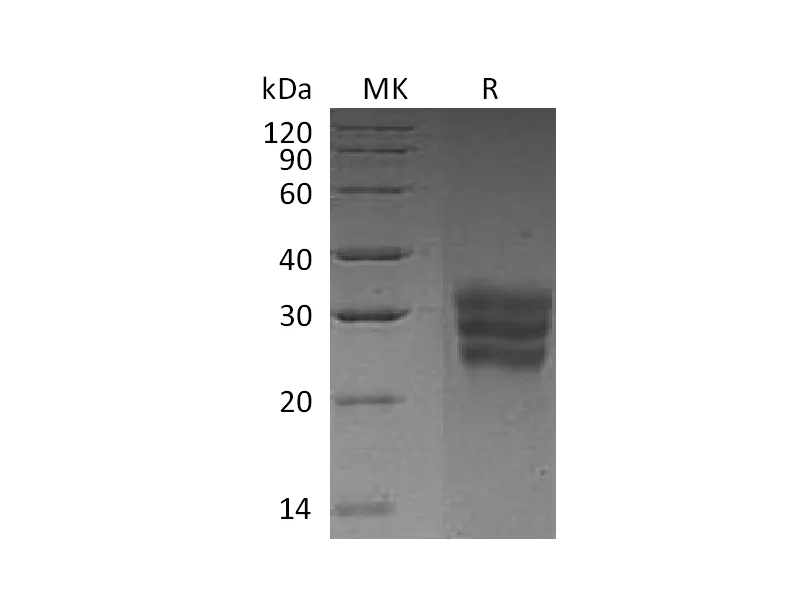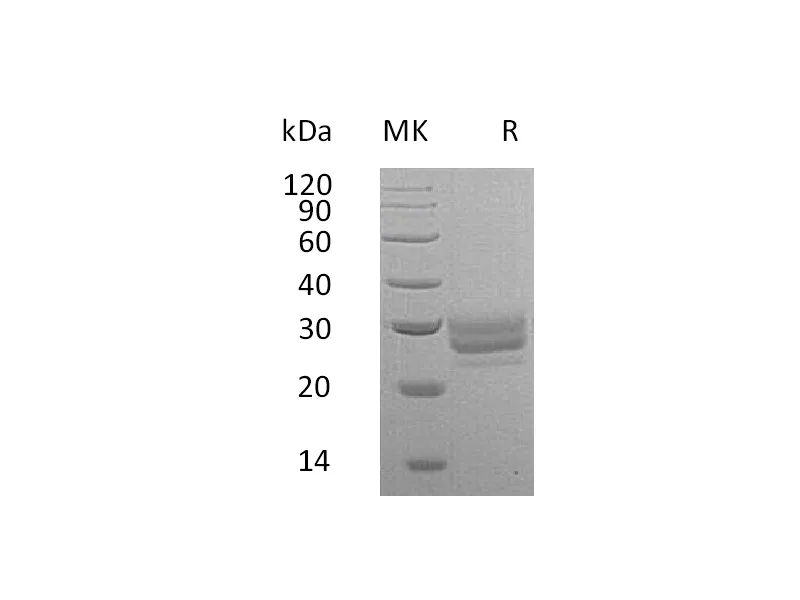Alternative Names
Hepatocyte growth factor; HPTA; HGF; SF; Scatter factor; Hepatopoietin-A
Background
HGF, is a pleiotropic protein in the Plasminogen subfamily of S1 peptidases and contains 4 kringle domains, 1 PAN domain and 1 peptidase S1 domain. HGF is secreted as an inactive 728 amino acid (aa) single chain propeptide. It is cleaved after the fourth Kringle domain by a serine protease to form bioactive disulfide-linked HGF with a 60 kDa alpha and 30 kDa beta chain. HGF binds heparan-sulfate proteoglycans and the widely expressed receptor tyrosine kinase, HGF R/c-MET. HGF regulates epithelial morphogenesis by inducing cell scattering and branching tubulogenesis. It can also alter epithelium morphology by the induction of nectin-1 alpha ectodomain shedding, an adhesion protein component of adherens junctions. HGF regulates cell growth, cell motility, and morphogenesis by activating a tyrosine kinase signaling cascade after binding to the proto oncogenic c-Met receptor. HGF is secreted by mesenchymal cells and acts as a multi-functional cytokine on cells of mainly epithelial origin. Its ability to stimulate mitogenesis, cell motility, and matrix invasion gives it a central role in angiogenesis, tumorogenesis, and tissue regeneration.
Note
For Research Use Only , Not for Diagnostic Use.






